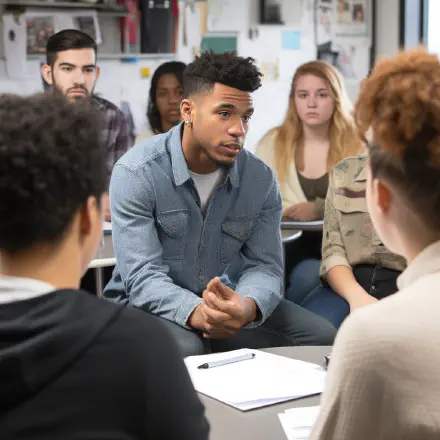
In today’s fast-paced, information-rich world, it is more important than ever to develop strong critical thinking and problem-solving skills. These abilities enable us to make better decisions, learn from our experiences, and adapt to new situations. This article will discuss the importance of cultivating these skills for personal growth and present strategies to overcome mental blocks and cognitive biases.
The Importance of Critical Thinking and Problem-Solving Skills
Critical thinking is the ability to analyze, evaluate, and synthesize information to form logical and well-reasoned judgments. Problem-solving, on the other hand, involves identifying challenges and finding effective solutions to overcome them. Both of these skills are essential for personal and professional growth, as they promote self-awareness, intellectual curiosity, and innovation.
Developing critical thinking and problem-solving skills not only helps us make better decisions in the face of uncertainty but also fosters a growth mindset. This mindset, characterized by embracing challenges and viewing failures as opportunities for learning, is crucial for continuous improvement and success in any endeavor.
Recognizing and Overcoming Cognitive Biases
Cognitive biases are mental shortcuts that our brains use to process information more efficiently. However, they can also lead to errors in judgment and decision-making. Some common cognitive biases include confirmation bias, the tendency to seek out and favor information that supports our preexisting beliefs, and the sunk cost fallacy, the inclination to continue investing in a decision based on the amount already invested, rather than evaluating the current and future value.
To overcome cognitive biases, it’s essential to practice self-awareness and reflection. Be open to challenging your assumptions and beliefs, and consider alternative viewpoints. Moreover, seeking feedback from diverse perspectives and engaging in active listening can help counteract the influence of biases on your thought processes.
Strategies for Developing Critical Thinking and Problem-Solving Skills
-
Cultivate a growth mindset: Embrace challenges, learn from failures, and view setbacks as opportunities for growth. This mindset encourages curiosity, persistence, and resilience.
-
Practice metacognition: Reflect on your thought processes and identify patterns in your thinking that may be influenced by cognitive biases. This self-awareness can help you recognize and address mental blocks.
-
Develop information literacy: Learn to evaluate sources of information for credibility, accuracy, and relevance. This skill is particularly important in the age of information overload and misinformation.
-
Engage in inquiry-based learning: Ask open-ended questions and engage in discussions that foster critical thinking, creativity, and innovation.
-
Practice mindfulness: Cultivate an awareness of your thoughts, emotions, and surroundings. Mindfulness can help you stay present and focused, which is essential for effective problem-solving and decision-making.
In conclusion, nurturing critical thinking and problem-solving skills is vital for personal growth and success in our increasingly complex world. By recognizing and addressing cognitive biases and mental blocks, we can foster a growth mindset and develop a strong foundation for lifelong learning and adaptation.

